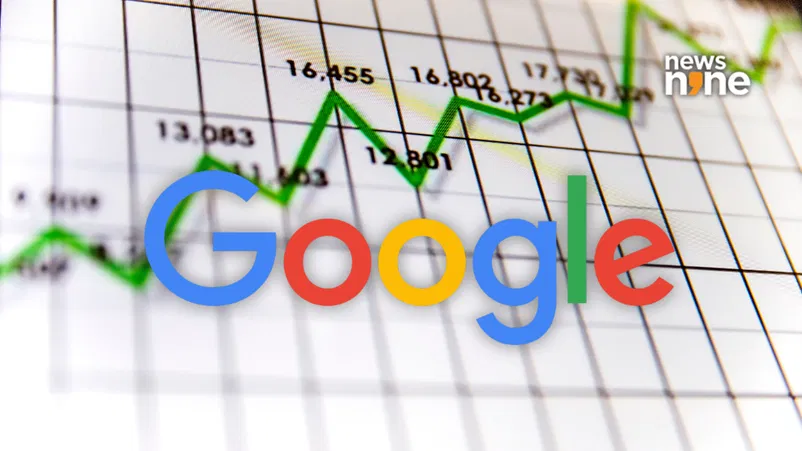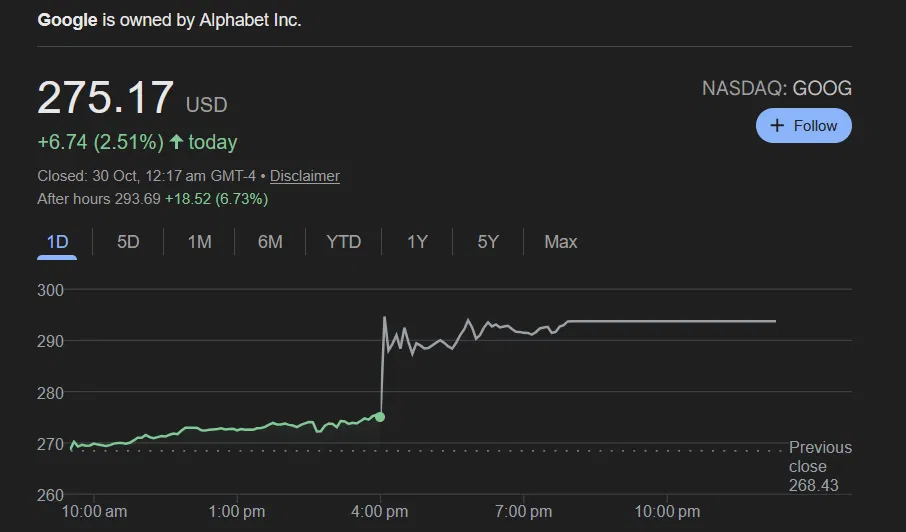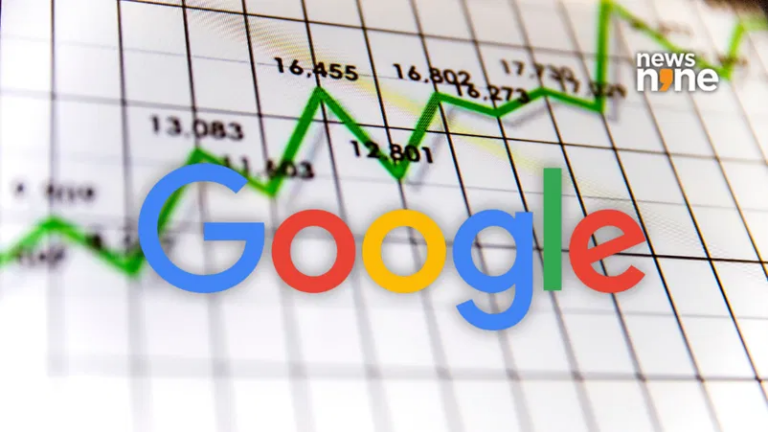Tech News
Alphabet posted record Q3 2025 results with $102.35 billion in revenue and a 35% jump in profit, driven by strong Google Cloud and YouTube ad growth. The company raised its AI infrastructure spending forecast to $91–93 billion for 2025 as demand for generative AI continues to rise.

Alphabet reported record quarterly revenue of $102.35 billion, beating forecasts.
New Delhi: Alphabet, the parent company of Google, reported another strong quarter as its advertising and cloud divisions continued to grow, comfortably beating Wall Street’s expectations. The company also confirmed it will spend billions more on AI infrastructure than it had originally planned.
For the quarter ending September 30, Alphabet’s revenue jumped 16% year-on-year to $102.35 billion, crossing the $100 billion mark for the first time. Earnings per share rose 35% to $2.87, compared to analysts’ average estimate of $2.26. The results sent Google’s stock up in after-hours trading, reflecting investor confidence in the company’s steady AI-driven growth.

Google stock performance
Search and YouTube lead the charge
Google’s bread-and-butter search business delivered another strong performance, generating $56.57 billion in ad revenue, up over 14% from last year and above estimates of $55.05 billion. YouTube also continued its recovery from last year’s slowdown, reporting $10.26 billion in ad revenue, up 15% and slightly ahead of expectations.
The rise in digital ad revenue highlights how Alphabet’s platforms remain central to global marketing budgets, even as advertisers diversify spending across newer social media and streaming platforms. Lower interest rates and a slight rebound in consumer demand likely helped boost ad spending in key markets.
Google Cloud narrows gap with Amazon and Microsoft
Google Cloud once again emerged as a star performer, growing 33.5% to $15.16 billion, beating projections of $14.70 billion. The segment has seen consistent momentum from enterprise clients adopting AI infrastructure and data analytics tools.
Analysts say the growth is driven by demand for products like Vertex AI and Google’s custom tensor processing units, both designed to handle large-scale AI workloads. With more businesses turning to generative AI, Google Cloud is slowly closing the gap with larger rivals such as Amazon Web Services and Microsoft Azure.
Still, competition in the AI cloud space remains fierce. Rivals are introducing new generative AI tools and offering competitive pricing to attract enterprise customers. But Google’s early focus on building its AI hardware and training infrastructure is now showing visible results in revenue numbers.
Billions more for AI and data centers
Alphabet raised its capital expenditure forecast for 2025 to between $91 billion and $93 billion, up from a previous estimate of $85 billion and an earlier projection of $75 billion. Most of this money will go toward data centers and AI computing capacity.
The steep rise in spending reflects how deeply artificial intelligence is being woven into Google’s core business. Nearly every product the company offers, from Search and YouTube to Ads and Cloud, now uses some form of AI or machine learning to improve performance and user experience.
In a statement shared with investors, Alphabet said the additional capital will support its AI ambitions across data infrastructure, model training, and enterprise deployment. Wall Street analysts largely viewed the move as a sign that the company is confident about long-term demand for AI-powered tools and services.
Ad growth steady, AI bets getting bigger
Alphabet’s third-quarter performance shows a company firing on all cylinders. Its ad business continues to deliver steady profits, YouTube is back in growth mode, and Google Cloud’s strong performance underscores the company’s success in selling AI infrastructure to enterprises.
But the real story this quarter is the massive capital outlay. Spending close to $90 billion on AI infrastructure signals that Google sees artificial intelligence not just as an experiment, but as the core of its next decade of growth. The move might squeeze short-term margins, but if demand for AI services continues to rise globally, it could redefine how Alphabet earns its next $100 billion.

Siddharth Shankar brings over a decade of experience in the realm of journalism, film making, and marketing, currently heading the Technology, Science, Gaming, and Automobile sections. He blends his expertise and passion to bring forth cutting-edge stories that resonate with a dynamic audience. Siddharth co-founded BWAutoworld.com for BW Businessworld and was leading Science and Technology domains for TimesNow Digital. For leads Siddharth can be reached on Twitter – @Siddh4rth
Read More
Next Article
Follow us on social media
[ad_1]
Images are for reference only.Images and contents gathered automatic from google or 3rd party sources.All rights on the images and contents are with their legal original owners.
[ad_2]

